- Mesothelioma is a rare type of cancer that occurs in the thin layer of cells lining the body’s internal organs, known as the mesothelium.
- The mesothelium is made of epithelial cells and also lines the thoracic and abdominal cavities as well as the heart sac.
- The cancer is caused by the exposure to asbestos.
- When asbestos fibers are inhaled or ingested, they can enter the mesothelium and injure the mesothelial cells, eventually giving rise to malignant tumors in the lungs, abdomen, heart or testes.
Interesting Science Videos
Mesothelioma Types
There are three main recognized types of mesothelioma:
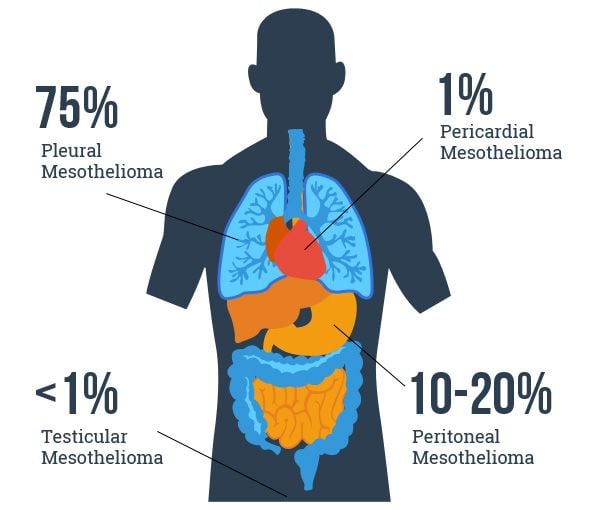
- Pleural mesothelioma: The most common form of the disease, accounting for roughly 70% of cases, and occurs in the lining of the lung known as the pleura.
- Peritoneal mesothelioma: It occurs in the lining of the abdominal cavity, known as the peritoneum.
- Pericardial mesothelioma: It originates in the pericardium, which lines the heart. It is the rarest of the major types of asbestos-related cancer.
- Testicular mesothelioma: Rare, found in the testicles.
Mesothelioma Causes
- Mesothelioma is primarily believed to be caused by exposure to asbestos and the inhalation or ingestion of asbestos particles.
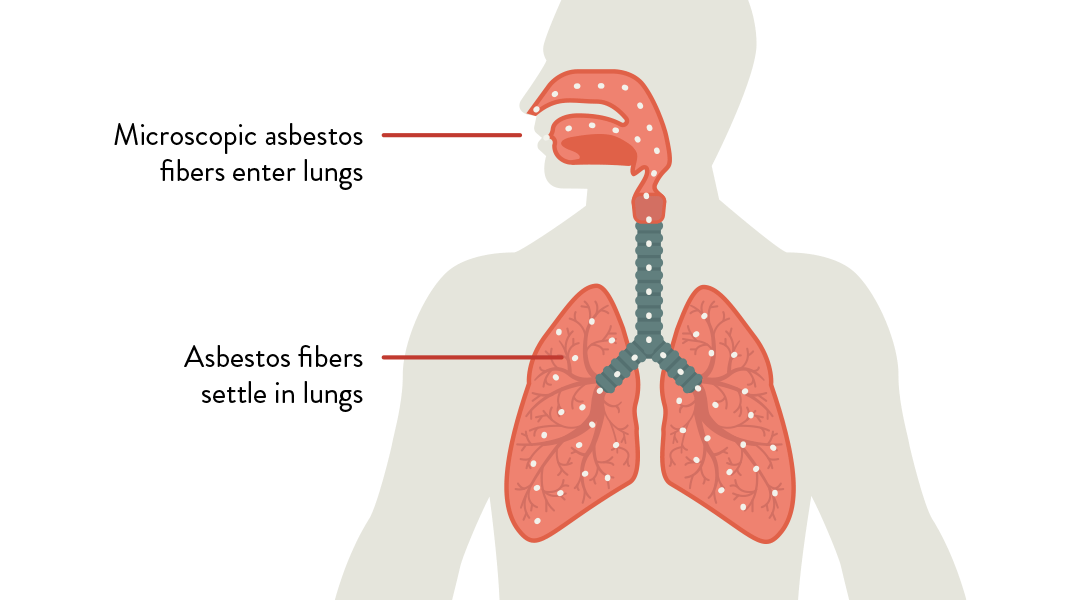
- Asbestos is a set of six naturally occurring silicate minerals which share a common crystal growing form. They grow as sharp, thin, long and flexible fibers and because of their great strength and resistibility to heat and harsh chemicals, it is incredibly useful in industries. However, they are found to be carcinogenic and inhaling asbestos fibers is dangerous.
- An individual may be at risk to develop mesothelioma if he or she is exposed to asbestos in the workplace or at home consistently.
- Individuals may also suffer from secondhand exposure to asbestos such as by growing up in the shadow of an asbestos plant or mine, living near a natural source, and having family members who work with asbestos and inadvertently bring fibers into home on their clothes, skin, or in their hair.
- Recent events have also shown that exposure to a large amount of asbestos for a short amount of time may also result in development of this disease.
- In addition, researchers have studied the impact of certain genetic factors on the development of mesothelioma and noted that those with a family history of cancer have a greater chance of developing mesothelioma.
- Other less known contributing factors include: Asbestos-Like Minerals, Simian Virus 40 (SV40), Smoking, Radiation Exposure and Carbon Nanotubes.
Mesothelioma Mechanism of Tumor Formation
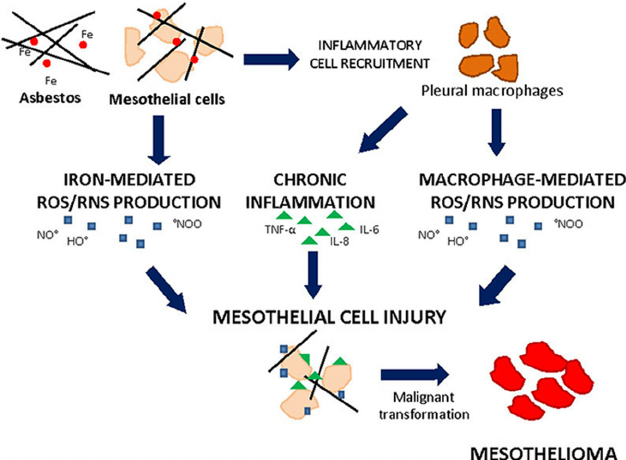
1. Pleural mesothelioma
- Once tiny asbestos fibers are inhaled, they are difficult to expel due to their extremely small size and hydrophobicity. They make their way into the inner space of the lungs and slowly into the epithelial cells into the visceral or parietal pleura which are both the layers of mesothelium. The microscopic jagged asbestos is not metabolized or cleared hence, it remains for life. The presence of these fibers leads to an inflammatory response and DNA damage. Eventually mutations may arise that lead to the epithelial cells dividing uncontrollably resulting into tumors.
- Directly, asbestos interferes with the mitosis process in cell division, which can cause cellular damage and mutation. Indirectly, asbestos can cause mesothelial cells to release mutagenic reactive oxygen and nitrogen, which also causes mutation.
2. Peritoneal mesothelioma
- Similarly, asbestos fibers can also end up in the stomach if saliva containing the material or mucous from the airways is swallowed. They, there make their way into the epithelial tissues and produce similar sequence of events.
3. Pericardial mesothelioma
- Asbestos may also travel through the lymph nodes to other parts of the body, such as the pericardium, the mesothelial layer surrounding the heart.
Mesothelioma Symptoms
- In most cases, mesothelioma symptoms will not appear in an individual exposed to asbestos until many years (often 20-50 years) after the exposure has occurred.
- The symptoms, once evident are similar to other lungs and gastrointestinal cancers.
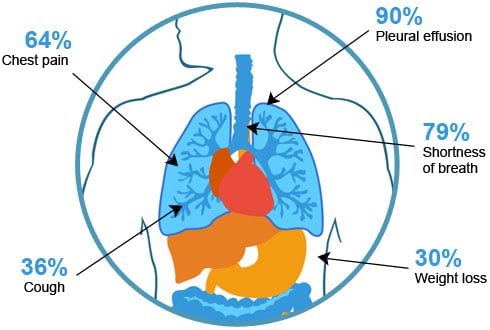
Pleural mesothelioma
- Chest pain
- Shortness of breath
- Dry cough
- Pleural efflusions
- Bloody sputum (If tumours invades into blood vessels)
- Occasionally destruction of lung tissue between bronchial tree and pleural space
- Fatigue
- Hoarseness
- Hypoxemia – low oxygen level
- Dysphasia – difficulty swallowing
- Fever/night sweats
Peritoneal mesothelioma
- Abdominal/stomach pain
- Ascites/swelling
- Anorexia/weight loss
- Nausea
- Anemia
- Thrombosis – blood clots
- Peritoneal effusion – fluid buildup
- Fever
- Hypoglycemia – low blood sugar
Pericardial mesothelioma
- Chest pain
- Pericardial effusion (fluid buildup)
- Arrhythmia
- Heart murmurs
- Fever/night sweats
- Coughing
- Dyspnea – shortness of breath
- Pulse variance
Mesothelioma Incidence

Source: DOI: https://doi.org/10.1515/reveh-2016-0007
- New cases of mesothelioma are diagnosed in between 2,500 and 3,000 Americans each year.
- On average, about 2,500 mesothelioma-related deaths occur in the U.S. each year. Between 1999 and 2010, more than 31,000 people in the U.S. died due to mesothelioma.
- Mesothelioma is much more common in men than women, due mostly to occupational asbestos exposure being more common among men in industrial labor settings.
- Mesothelioma is much less common among African Americans than Caucasians, the reasons for which researchers are still investigating.
- Navy vets and shipyard workers account for about one-third of the total cases, putting them in the highest risk group for developing this aggressive cancer. Greatest incidence of disease is seen in individuals involved in the military, paint and textile industries and construction workers.
- Today, the average mesothelioma patient is a white male, 65 years of age or older.
Mesothelioma Prognosis
- The biggest factors affecting the prognosis of mesothelioma patients are:
- Tumor size and staging
- Cell type (histopathology)
- Patient’s gender and age
- Stage of the cancer
- As mesothelioma is often diagnosed in its advanced stages, the prognosis from mesothelioma is often in the range of a year after diagnosis (6 months – 1 year).
- With all types of mesothelioma, prognosis is poor. For patients who do not receive treatment, the median survival is only six months; however, certain types of treatment can improve life expectancy significantly.
- Also if diagnosed early enough, survival may potentially extend over many years.
- Approximately 55 percent of mesothelioma patients live longer than 6 months, while roughly 35 percent live longer than one year. Only 9 percent of people diagnosed with mesothelioma survive longer than 5 years.
- However, patient survival rates are often contingent on the treatments available to the particular patient.
Mesothelioma Diagnosis
Those with a past asbestos exposure history experiencing symptoms should consult a physician with experience in accurately diagnosing mesothelioma. The earlier mesothelioma is diagnosed, the more likely it is to be caught at an early stage.
- Perform one or more imaging tests (x-ray, CT scans, PET, or MRI) to identify potential tumors.
- If such a tumor is detected, one or more blood tests may be performed to look for certain biomarkers (high levels of specific substances in the blood).
- If these tests point toward the possibility of mesothelioma, the diagnosis will need to be verified through a biopsy – usually through a thoracoscopy, thoracotomy, thoracentesis, or mediastinoscopy.
Misdiagnosis is easy with malignant mesothelioma, because the disease’s symptoms so closely resemble those of other related conditions such as lung cancer or other respiratory ailments.
Mesothelioma Treatment
- Since the disease is one of the most aggressive forms of cancer, there is no known mesothelioma cure. Unfortunately, most patients die within just a few years of a mesothelioma diagnosis.
- The common treatment measures include:
- Chemotherapy (drugs including Alimta and Cisplatin)
- Surgical removal of the disease
- Radiation
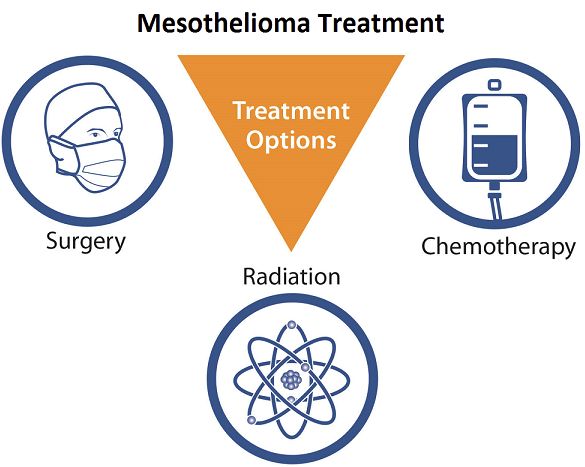
- Some newer treatments such as mesothelioma gene therapy and photodynamic therapy have shown promise in fighting this cancer and tests are being developed that will help detect the disease at an earlier stage, providing more hope for the mesothelioma patient.
Mesothelioma Prevention
- Since mesothelioma is almost exclusively caused by exposure to asbestos fibers, avoiding asbestos exposure is the key to prevention.
- Under current laws, the maximum permissible level of exposure is 0.1 fibers per cubic centimeter for an eight-hour work day and one fiber per cubic centimeter during any thirty minute period.
- In addition, employers are obligated to monitor and regulate the work environment and provide employees with protective gear and safety training.
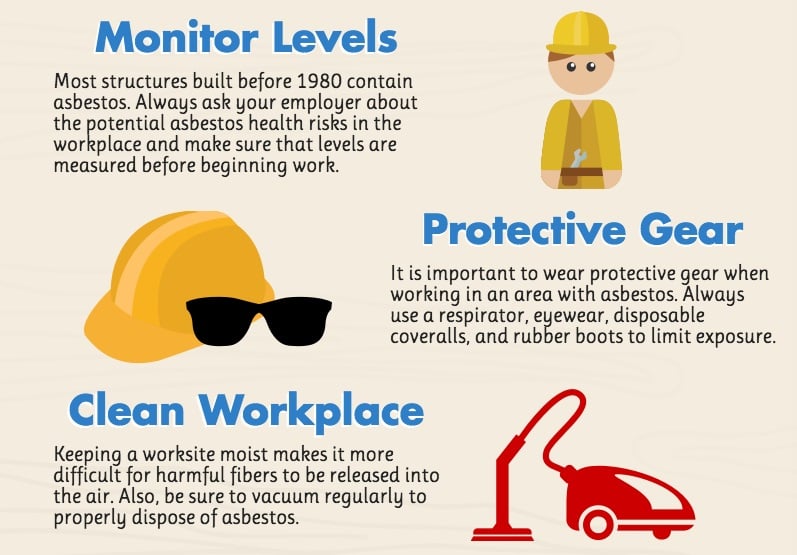
Other recommendations on how people can protect themselves against non occupational asbestos exposure include:
- Regular inspection and monitoring of asbestos products or materials in and around the home; asbestos was part of many common building materials.
- Having asbestos abatement carried out by trained, licensed professionals with proper safety equipment only.
- Avoiding sweeping, vacuuming, sanding, scraping or otherwise disturbing any surfaces that may be made from asbestos or contain asbestos materials.
- Avoiding the use of tobacco; studies have demonstrated a link beween smoking and mesothelioma showing that smokers face up to a 9000% greater chance of contracting asbestos cancer.
- Getting regular checkups, particularly if there is a known history of asbestos exposure (i.e. having worked in an industrial occupation).
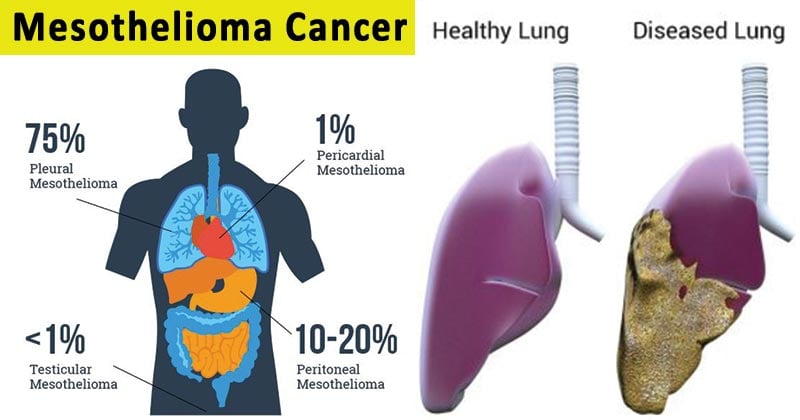
References
- https://www.mesothelioma.com/mesothelioma/information/
- https://rarediseases.info.nih.gov/diseases/7026/malignant-mesothelioma
- https://www.cancer.org/cancer/malignant-mesothelioma.html
- https://www.asbestos.com/mesothelioma/
- https://www.ncbi.nlm.nih.gov/pubmed/16054941
- https://ehs.oregonstate.edu/asb
- https://www.mesothelioma.com/mesothelioma/information/disease.htm
- https://www.osha.gov/Publications/OSHA3507.pdf
- https://en.wikipedia.org/wiki/Asbestos
- https://www.cancer.gov/types/mesothelioma/patient/mesothelioma-treatment-pdq
- https://www.mesotheliomahelp.org/mesothelioma/
